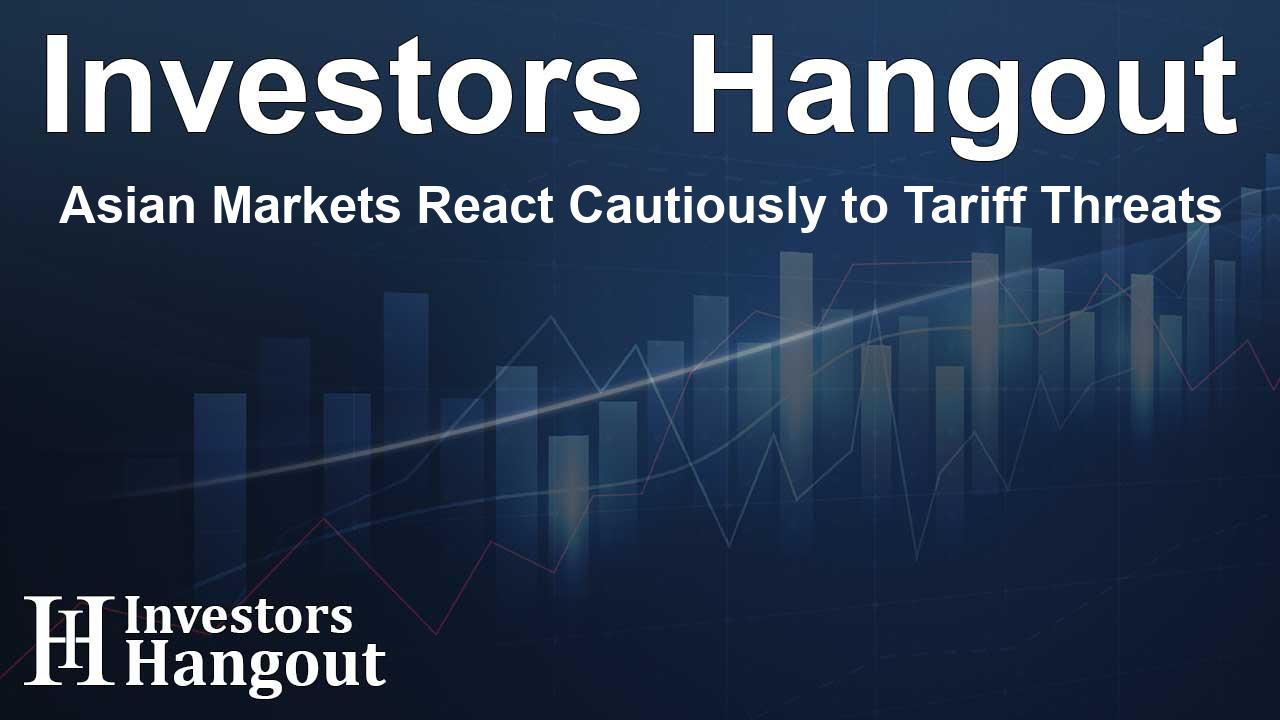Cautious Investor Sentiment in Asia Amid Tariff Fears
As global markets gear up for the upcoming trading sessions, Asian investors are on edge due to the ongoing rhetoric surrounding potential tariffs from a second Trump administration. It appears that Japan, rather than China, is feeling the most significant impact of these looming economic challenges.
The Strength of the Yen and Its Effects
The yen's recent strength adds another layer of concern for exporters, creating a challenging environment for businesses reliant on international trade. Since mid-November, the yen has been one of the few currencies appreciating against the dollar. This situation puts additional pressure on companies that depend heavily on exports, leading to a notable underperformance in automaker shares. The echoes of previous tariff disputes, particularly those affecting Mexican factories back in 2017, have resurfaced, drawing attention to potential vulnerabilities.
China's Response to Tariff Threats
On the other hand, Chinese investors appear to have adopted a mixed stance regarding the tariff threats. While they are relieved that the proposed tariffs are not as severe as initially feared—dropping from a potential 60% to a lesser 10%—there remains a cautious optimism about government-backed stimulus measures designed to mitigate any adverse effects on trade. Managing currency fluctuations, the yuan is experiencing significant pressure but is being met with government interventions to stabilize the situation.
Market Sentiment Moving Forward
Investor sentiment in the markets indicates a belief that these tariff threats may serve more as strategic bargaining chips for negotiations rather than concrete actions that will destabilize trade relations significantly. Nonetheless, the caution remains palpable as investors assess the ongoing geopolitical landscape.
Significance of Central Bank Announcements
This backdrop of uncertainty is compounded by the attention turned toward central banks, particularly the Federal Reserve. The release of the central bank's preferred inflation gauge is anticipated, following minutes from recent meetings that suggest a careful approach to potential interest rate cuts. As the markets exchange low volumes ahead of the four-day Thanksgiving weekend in the United States, this economic data will be crucial in shaping investor behavior moving forward.
The European Market Outlook
Further afield, European stock futures are reflecting a mixed sentiment with the FTSE 100 poised to remain flat while indices in Germany and across the pan-European region point lower. Observations indicate fluctuating values for sterling and the euro against the dollar, indicating broader economic concerns that may resonate as the negotiations on tariffs continue. Notably, Britain's trade position with the United States, characterized by a minor surplus, may render it more resilient compared to its European counterparts.
Upcoming Economic Indicators
Today’s economic calendar highlights critical consumer sentiment readings from both Germany and France that will add depth to investors' understanding of the region's economic outlook. Additionally, notable figures from the ECB and the Riksbank are scheduled to speak, which could provide further insights into monetary policy positioning amid these unfolding events.
Frequently Asked Questions
1. How are Asian markets reacting to tariff threats?
Asian markets are reacting cautiously, especially with Japan feeling the most impact, leading to weaker investor confidence.
2. What factors are contributing to the strength of the yen?
The strength of the yen can be attributed to market fluctuations, with it being one of the few currencies to appreciate against the dollar in recent months.
3. How does China view the potential tariffs?
Chinese investors are both relieved by the lower tariff rates compared to previous threats and are optimistic about government stimulus mitigating trade impacts.
4. What economic data is being monitored?
Key economic indicators, such as consumer sentiment readings from Germany and France, along with the latest inflation gauge from the Fed, are under close scrutiny.
5. What are the broader implications for international trade?
The tariff threats underscore the fragility of international trade relations and pose risks to market stability, particularly in export-reliant economies.
About The Author
Contact Lucas Young privately here. Or send an email with ATTN: Lucas Young as the subject to contact@investorshangout.com.
About Investors Hangout
Investors Hangout is a leading online stock forum for financial discussion and learning, offering a wide range of free tools and resources. It draws in traders of all levels, who exchange market knowledge, investigate trading tactics, and keep an eye on industry developments in real time. Featuring financial articles, stock message boards, quotes, charts, company profiles, and live news updates. Through cooperative learning and a wealth of informational resources, it helps users from novices creating their first portfolios to experts honing their techniques. Join Investors Hangout today: https://investorshangout.com/
The content of this article is based on factual, publicly available information and does not represent legal, financial, or investment advice. Investors Hangout does not offer financial advice, and the author is not a licensed financial advisor. Consult a qualified advisor before making any financial or investment decisions based on this article. This article should not be considered advice to purchase, sell, or hold any securities or other investments. If any of the material provided here is inaccurate, please contact us for corrections.

